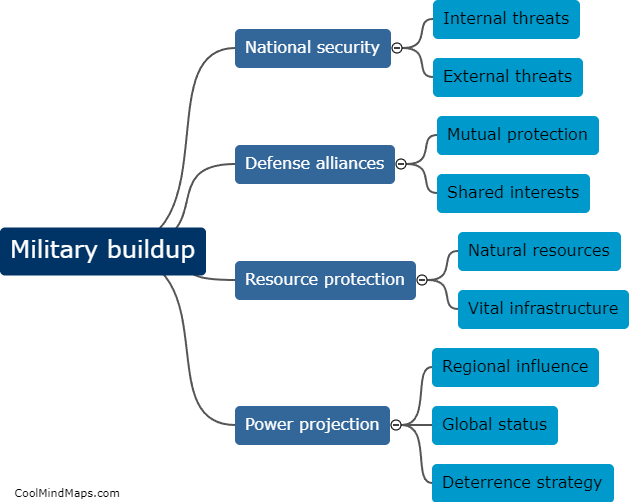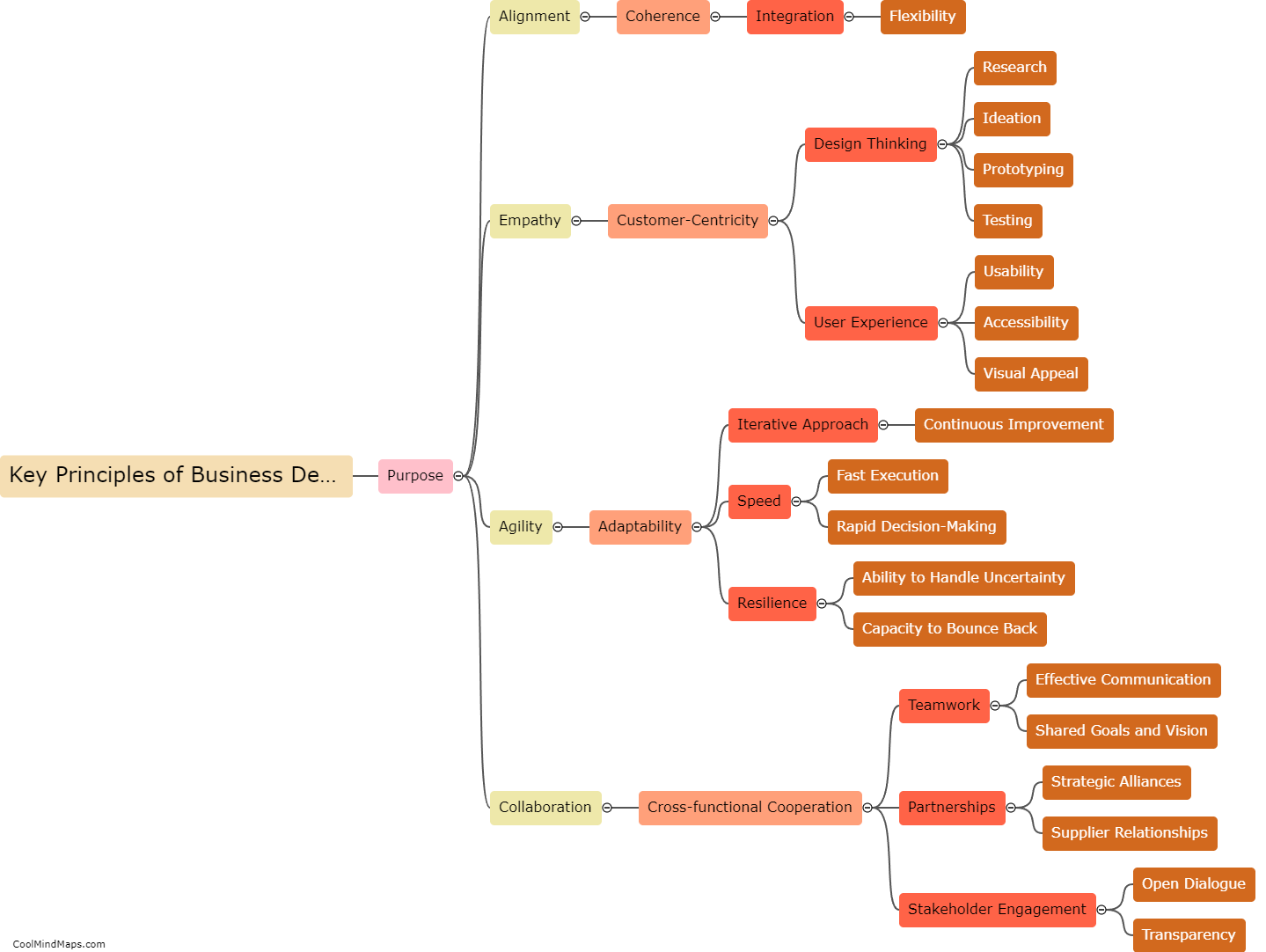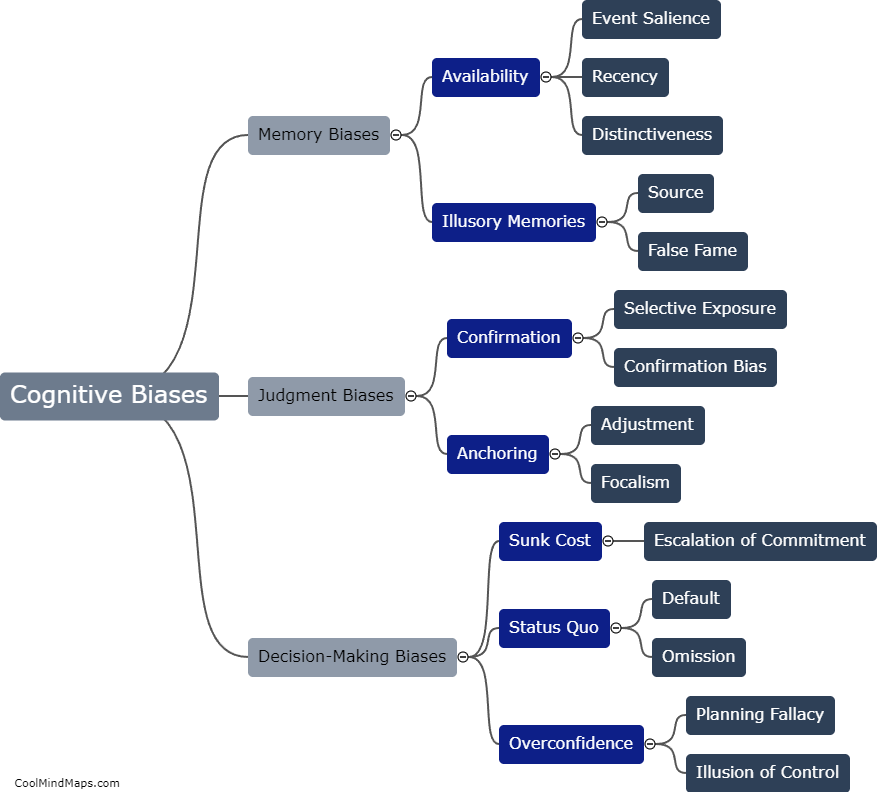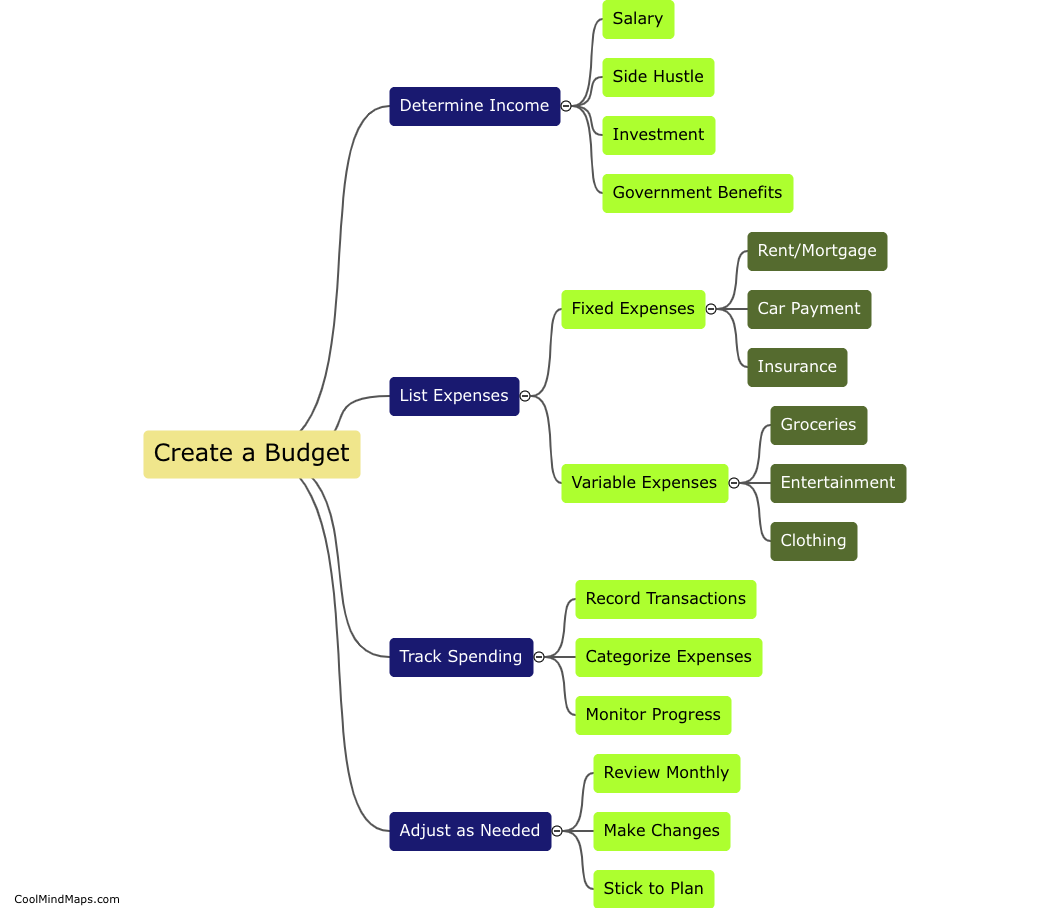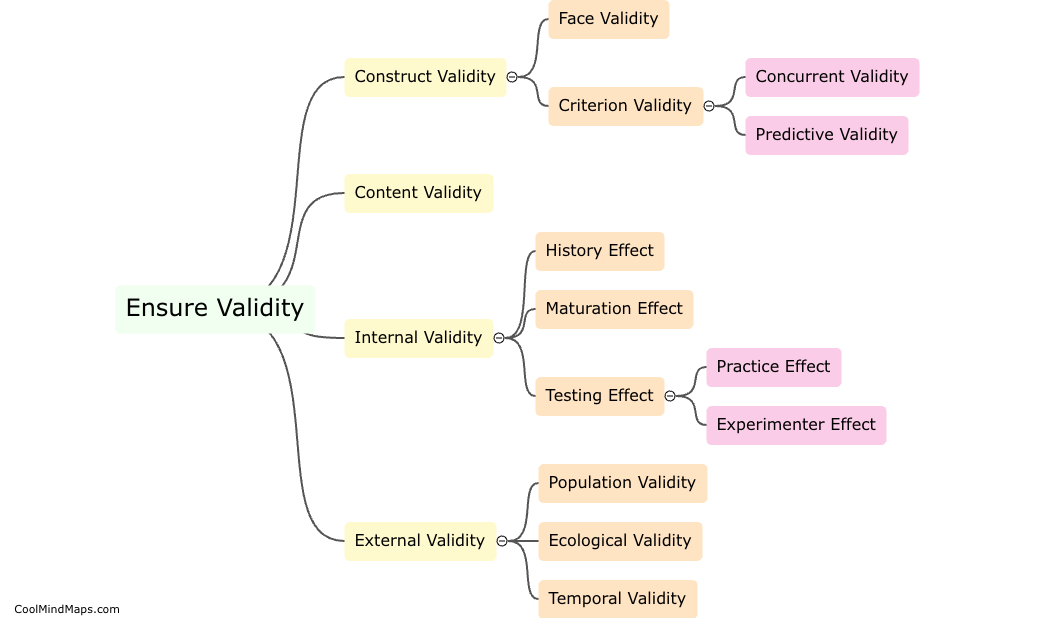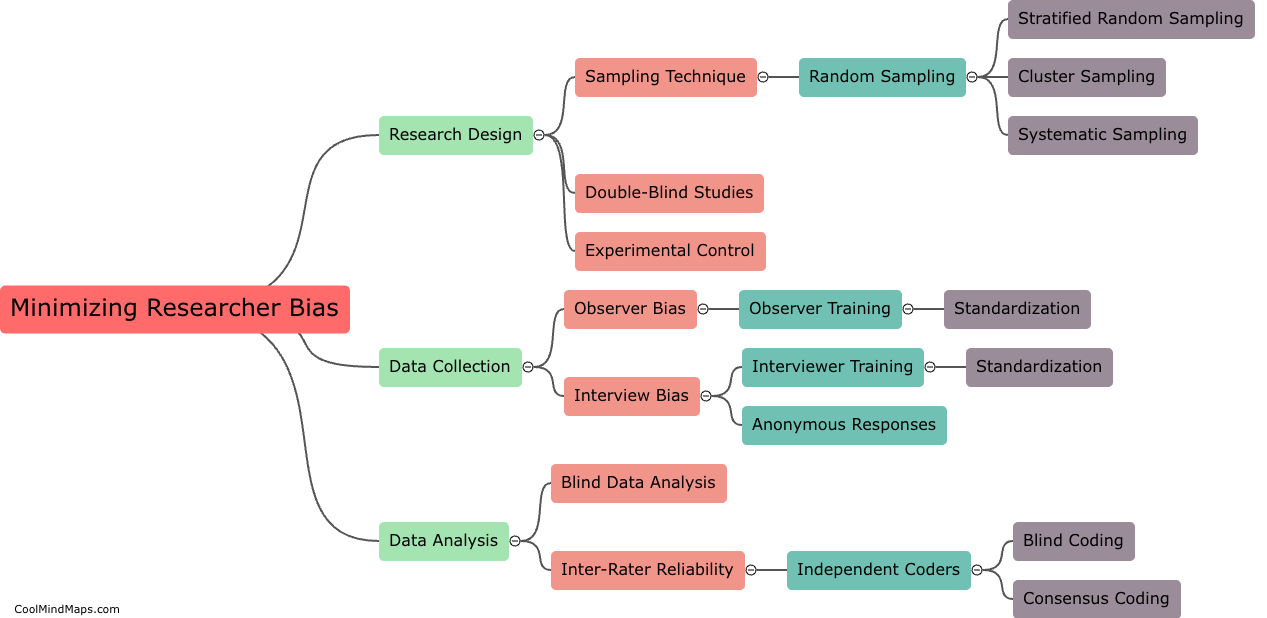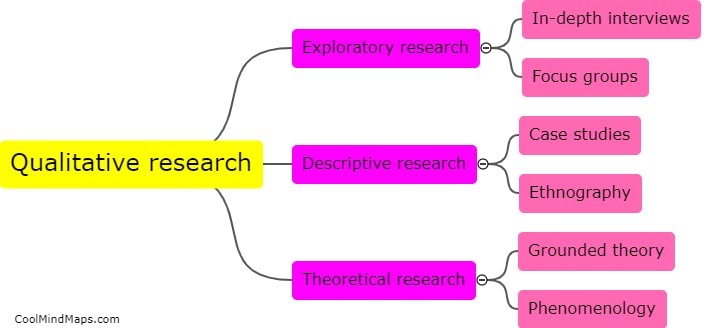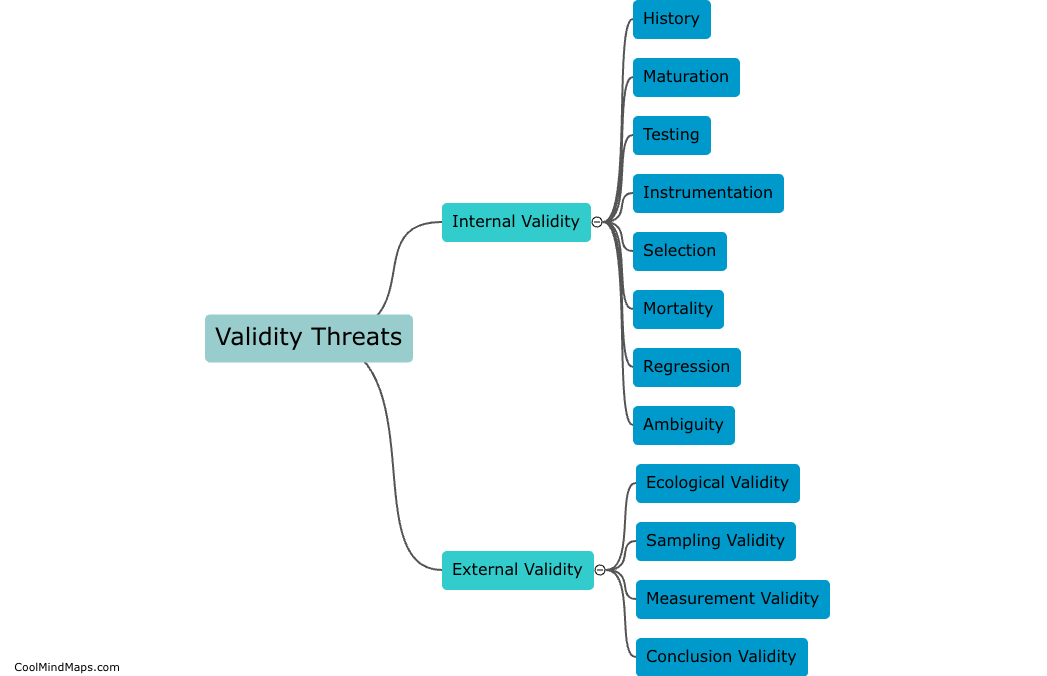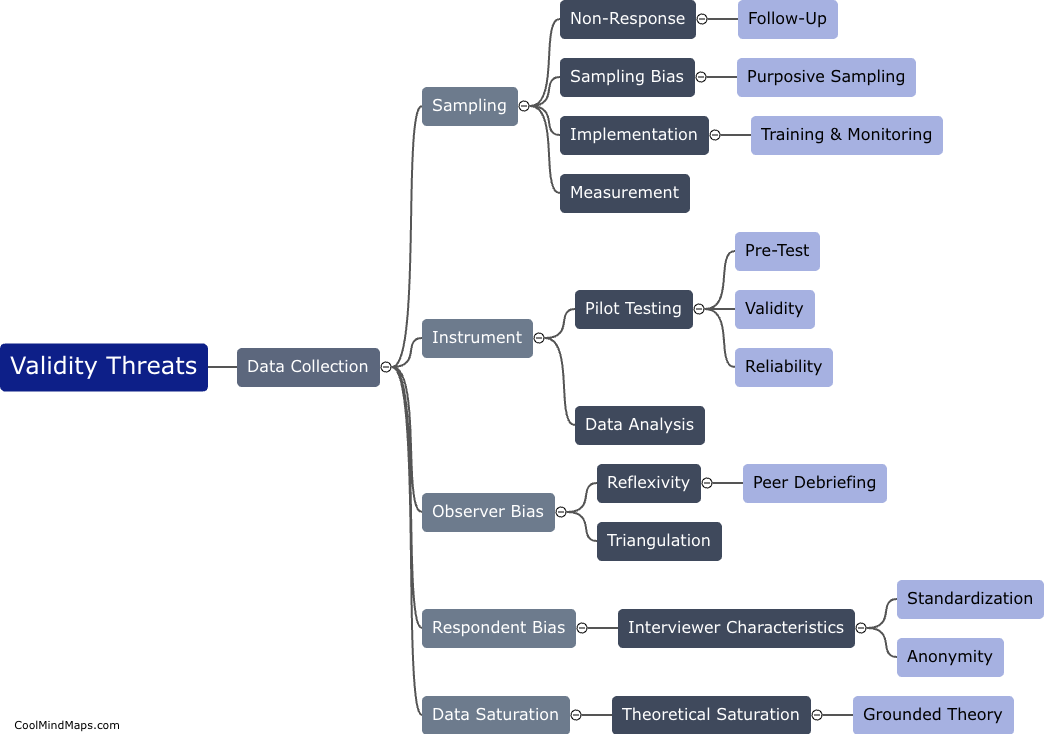How do validity and reliability differ between quantitative and qualitative research?
Validity and reliability are two key components of research that ensure the credibility and accuracy of the findings. In quantitative research, validity refers to the extent to which the study measures what it is intended to measure, whereas reliability refers to the consistency of the study's results over time or across different samples. In qualitative research, validity and reliability have a slightly different meaning. Validity in qualitative research refers to the extent to which the study accurately portrays the experiences and perspectives of the participants, whereas reliability speaks to the consistency of the findings when the research is conducted again by the same or different researchers. While both types of research require valid and reliable findings, the methods used to achieve these goals may differ due to the different types of data collected and analyzed.
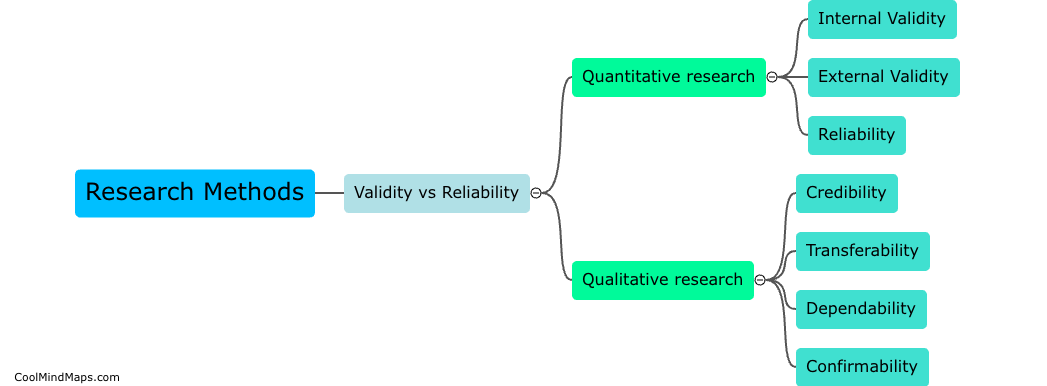
This mind map was published on 20 April 2023 and has been viewed 112 times.
